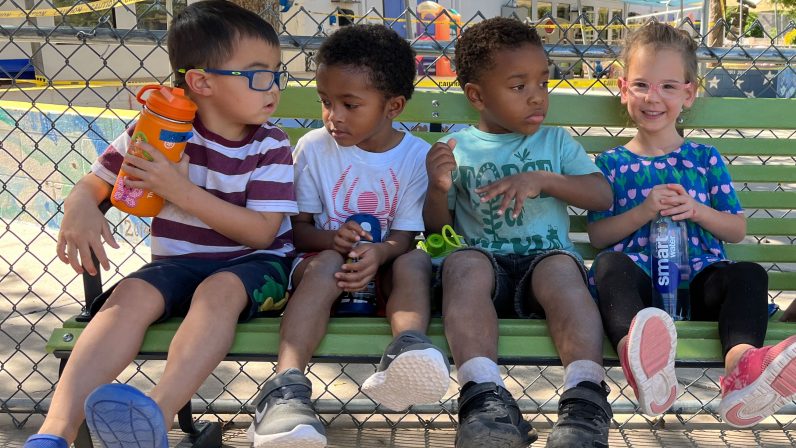On Monday, June 19, the Seed will be closed in honor of Juneteenth for the first time in the school’s history. Now a federal holiday, Britt Hawthorne describes it as a day “to commemorate the day that enslaved Black Texans in the U.S. were finally free.” It’s the longest Black American holiday to be celebrated, and unfortunately isn’t well known to many. It’s a tricky topic for very young children because it involves the topic of slavery. This quote from the National Museum of African American History and Culture serves as a good summary of how to approach the topic:
“When and how to talk about slavery with young children is an ongoing conversation in the field of early childhood education. Cognitively, most children can have explicit conversations about slavery by age six, with increasing depth at ages seven and eight. Emotionally, they may be ready earlier or later. Regardless of the child’s readiness or whether you introduce it to them yourself or not, they will likely hear about slavery in some capacity by the time they are five.
Whatever the age, a child’s first introduction to race should never be centered on trauma. African American history doesn’t start with slavery and it does not end there either. When a child’s first conversations around race are about pain, hate, or adversity, it communicates that talking about race or differences is negative or something to avoid. A child’s introductions to race and history must be grounded in pride, empowerment, and celebration first. Celebrating and teaching stories of Black culture, leadership, inventions, beauty, and accomplishments allows children to first understand Black identity as special and strong, and better equips them to later hear about, understand and emotionally process the terrible truths of slavery. Juneteenth events can be wonderful opportunities to introduce the concepts of slavery with a focus on resilience and within an environment of love, trust, and joy.”
Although our current summer program has an emphasis on rocks, rolling things, and rock and roll (among other related topics), it’s also an excellent time to remember our social justice work and use the upcoming weeks to reinforce our inclusion of all races and cultures, and particularly to highlight aspects of Black culture. For example, there are lots of possibilities to experience different types of music associated with Black culture in daily activities for all ages.
One thing that’s clear is the importance of entering into the Juneteenth conversation in ways that are developmentally appropriate and focused on empowerment and celebration. This fits in with how we approach diversity and inclusion in general, so for us it’s a matter of continuing conversations that are already in process. Although most of our students aren’t ready for a conversation about enslavement, it’s important for us as the adults in their lives to be informed and to do our own work with social justice. In the words of Britt Hawthorne: “Commit to the practice of antiracism—embark on a journey to untangle the racism you inherited in school and at home and take real, accountable steps to lead an antiracist life…It can be daunting to “get it right” and that’s why we ask questions. When you want to celebrate Juneteenth, you’re already on the right track to honoring the memory of those who were enslaved. It is ultimately a day to deepen your understanding of this country’s history, and your connection with modern-day race issues and remnants of slavery. As long as you stay connected, curious, and dedicated to doing better, you can help the cause.”
Helpful resources:
National Museum of African American History and Culture
Britt Hawthorne
Embrace Race
PBS
Ibram X Kendi on Juneteenth

